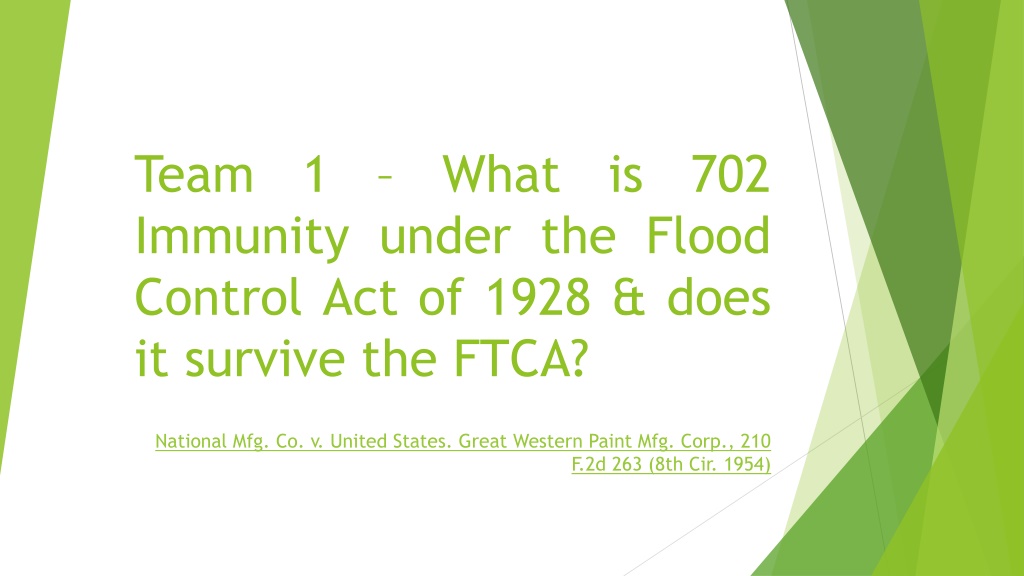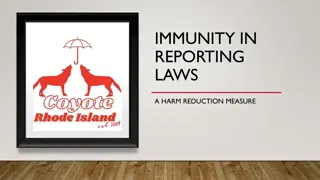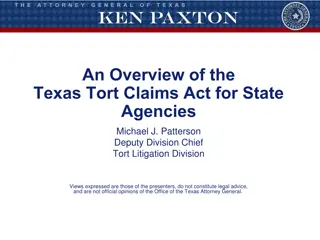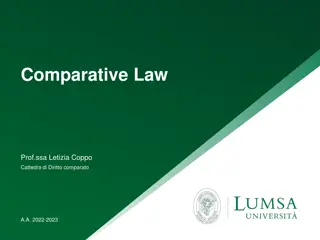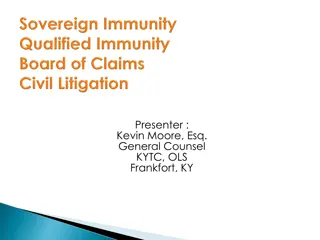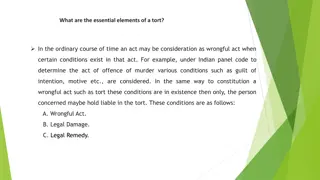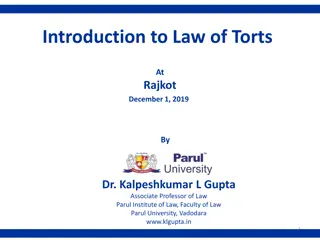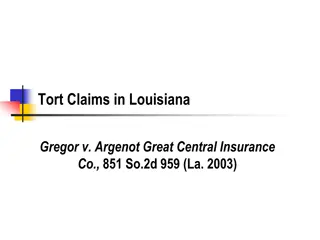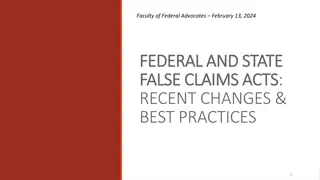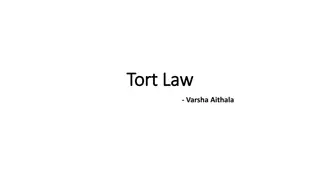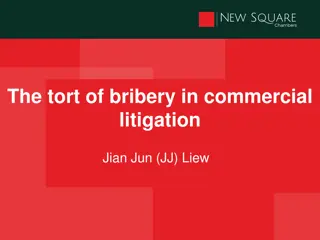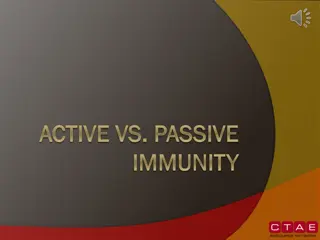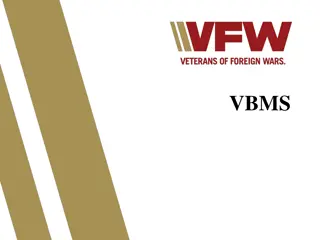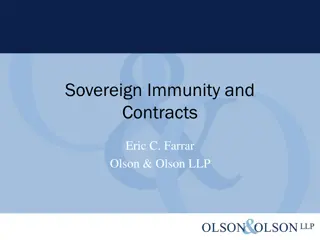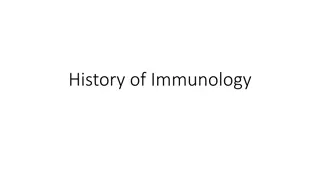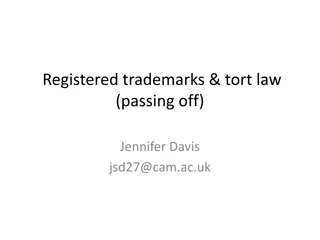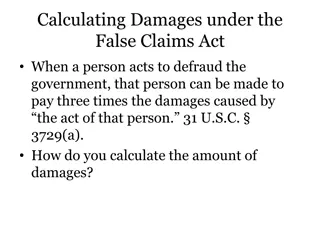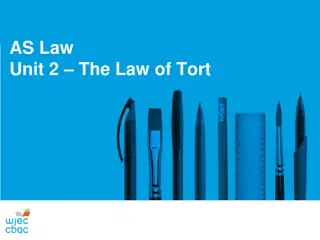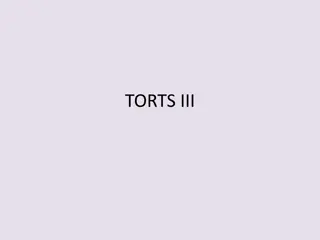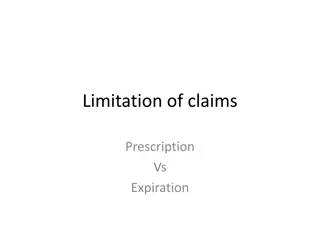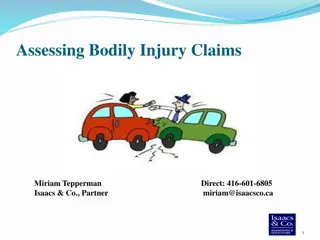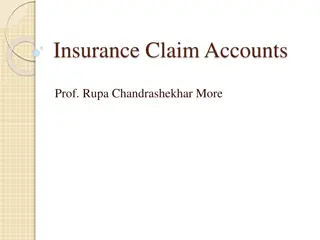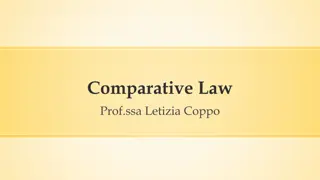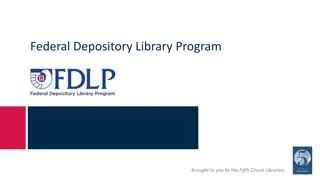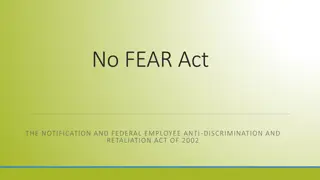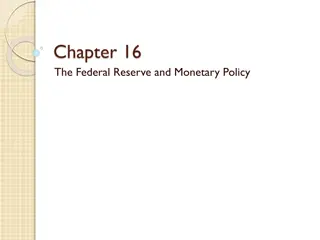Understanding the Intersection of 702 Immunity and the Federal Tort Claims Act (FTCA)
The discussion delves into the concept of 702 Immunity under the Flood Control Act of 1928 and its survival in relation to the Federal Tort Claims Act (FTCA). It explores the origins of 702 Immunity, its implications on government liability in flood-related damages, and how it intersects with the FTCA, providing insights into the legal framework governing liability for flood damages in the United States.
Download Presentation

Please find below an Image/Link to download the presentation.
The content on the website is provided AS IS for your information and personal use only. It may not be sold, licensed, or shared on other websites without obtaining consent from the author. Download presentation by click this link. If you encounter any issues during the download, it is possible that the publisher has removed the file from their server.
E N D
Presentation Transcript
Team Immunity under the Flood Control Act of 1928 & does it survive the FTCA? 1 What is 702 National Mfg. Co. v. United States. Great Western Paint Mfg. Corp., 210 F.2d 263 (8th Cir. 1954)
What is 702 Immunity? Congress kept government entirely free from liability when floods occur, notwithstanding the government works undertaken to minimize them. 33 USC 702(c) - No liability of any kind shall attach to or rest upon the United States for any damage from or by floods or flood waters at any place. Floods are traditionally deemed "Acts of God" and wreak the greatest property destruction of all natural catastrophes. Where floods occur after flood control work has been done and relied on the damages are vastly increased. Congress entered flood control on the great scale contemplated by the Acts it safeguarded the United States against liability of any kind for damage from or by floods or flood waters in the broadest and most emphatic language.
What is the FTCA? 28 U.S.C. 1346 The Federal Tort Claims Act (August 2, 1946 - U.S.C. 1346) ("FTCA") permits private parties to sue the United States in most torts committed by persons acting on behalf of the United States. 28 a federal court for The FTCA is a situational waiver of sovereign immunity that permits citizens to pursue some tort claims against the government.
Does 702 Immunity Survive the FTCA? Yes! The declaration of Section 3 negates the existence of a cause of action against the United States in the situation covered by it. The Federal Tort Claims Act of August 2, 1946, had not been passed in 1928 or 1936 and the government then had a certain sovereign immunity from suit for torts When Section 3 is read in its context it is clear Congress meant by it that damages from or by floods or flood waters should not afford any basis of liability against the United States regardless of whether the sovereign immunity was availed of or not. The section does not limit the bar against such recovery to cases where floods or flood waters are the sole cause of damages. It does bar liability of any kind from damages "by" floods or flood waters but it goes further and in addition it bars liability for damages that result (even indirectly) "from" floods. The use of the word "from" in addition to "by" makes it clear that the bar against federal liability for damages is made to apply wherever floods or flood waters have been substantial and material factors in destroying or damaging property.
